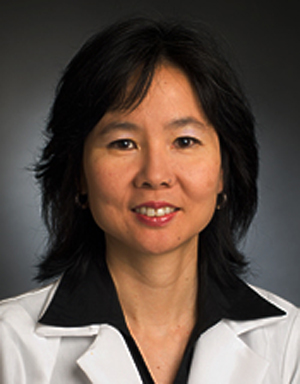Wendy Chen Links Light Drinking to Breast Cancer Risk
By wchung | 31 Dec, 2025
Wendy Chen's study has shown the first direct link between light drinking and increased breast cancer risk.
Having even a few drinks a week can boost a woman’s breast cancer risk by 15%, according to a study headed up by Wendy Y. Chen, an assistant professor of medicine at Boston’s Harvard Medical School and Brigham and Women’s Hospital.
“When you look at this, you see a dose-response effect,” said Chen, lead author of a paper published Tuesday in the Journal of the American Medical Assn. “That strengthens the fact that what you’re finding is real.”
Chen based her study on data from 105,986 women participating in the long-running Nurses’ Health Study who were assessed at regular intervals from 1980 until 2008 for alcohol intake and breast cancer, among other variables. Chen’s team distilled the link between drinking and breast cancer by controlling for other risk factors like family history and age at first pregnancy.
Chen found that women who consumed daily drinks containing at least 30 grams (about 1.1 ounces) of alcohol — the amount contained in two and a half shots of distilled liquor or about three glasses of wine — were 51% more likely to develop breast cancer than women who didn’t drink. More significantly, Chen found that even women who drink only 5 to 9.9 grams of alcohol per day — about like drinking three to six glasses of wine per week — face a 15% greater risk of developing breast cancer. It is the first time that even modest alcohol consumption has been linked to increased breast cancer risk.
The news is much worse for women who engage in binge drinking, i.e., downing six or more drinks in a single sitting. Such women incurred a 33% jump in cancer risk regardless of how much total alcohol they drank over time, concluded Chen. Also, heavy alcohol consumption between the ages of 18 and 40 was linked to higher breast cancer risk later in life regardless of alcohol consumption after the age of 40.
Hormones are the likely mechanism in linking alcohol to breast cancer, Chen concluded, because alcohol intake raises estrogen levels, a known breast cancer factor. The 15% increased risk linked to light daily alcohol consumption is similar to the risk associated with using estrogen-progesterone hormone therapy to treat menopausal symptoms and much less than the fivefold increased risk from inheriting certain mutations in the BRCA1 and BRCA2 genes.
A US woman’s baseline breast cancer risk is 1 in 8 over her lifetime, according to the American Cancer Society.
But the health impact of alcohol must be taken in perspective. Studies have shown that a few drinks a week lower the risk of heart disease by 25% to 40% — quite significant given that an American woman’s lifetime risk for heart disease is 1 in 2, substantially higher than her breast cancer risk.
Chen has also conducted research suggesting that consumption of soy-based foods actually lowers the risk of cancer recurrence in breast-cancer survivors despite studies suggesting that soy consumption may raise estrogen levels.
Wendy Chen is assistant professor of medicine at Harvard Medical School’s Dana Farber Cancer Institute’s Breast Oncology Center. She graduated from the University of Pennsylvania School of Medicine in 1993. Her residency in internal medicine was completed at the Brigham and Women’s Hospital in 1996. She also completed a fellowship there in hematology and oncology in 1999. Chen is certified in internal medicine, hematology and medical oncology.

Wendy Chen is an assistant professor at Harvard Medical Schools Dana Farber Cancer Institute.
Asian American Success Stories
- The 130 Most Inspiring Asian Americans of All Time
- 12 Most Brilliant Asian Americans
- Greatest Asian American War Heroes
- Asian American Digital Pioneers
- New Asian American Imagemakers
- Asian American Innovators
- The 20 Most Inspiring Asian Sports Stars
- 5 Most Daring Asian Americans
- Surprising Superstars
- TV’s Hottest Asians
- 100 Greatest Asian American Entrepreneurs
- Asian American Wonder Women
- Greatest Asian American Rags-to-Riches Stories
- Notable Asian American Professionals

